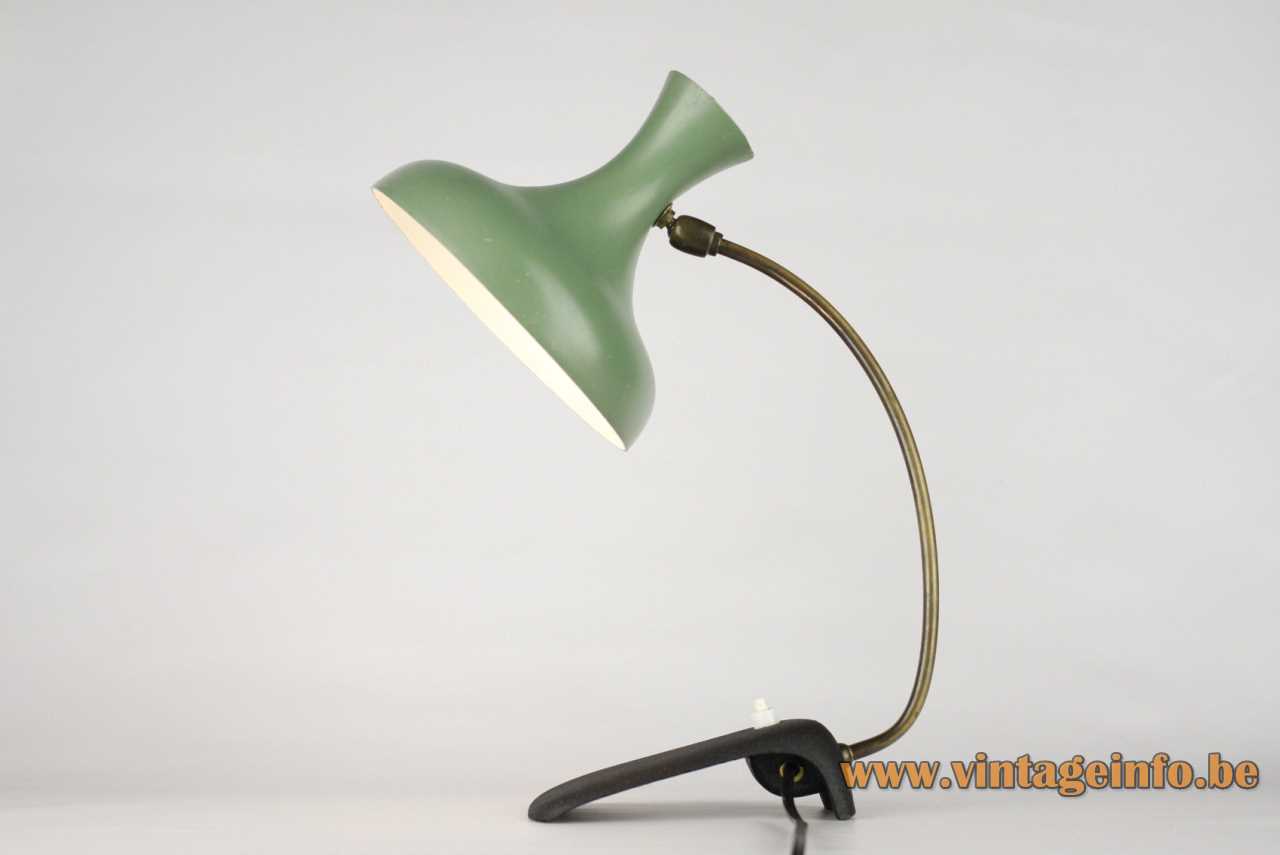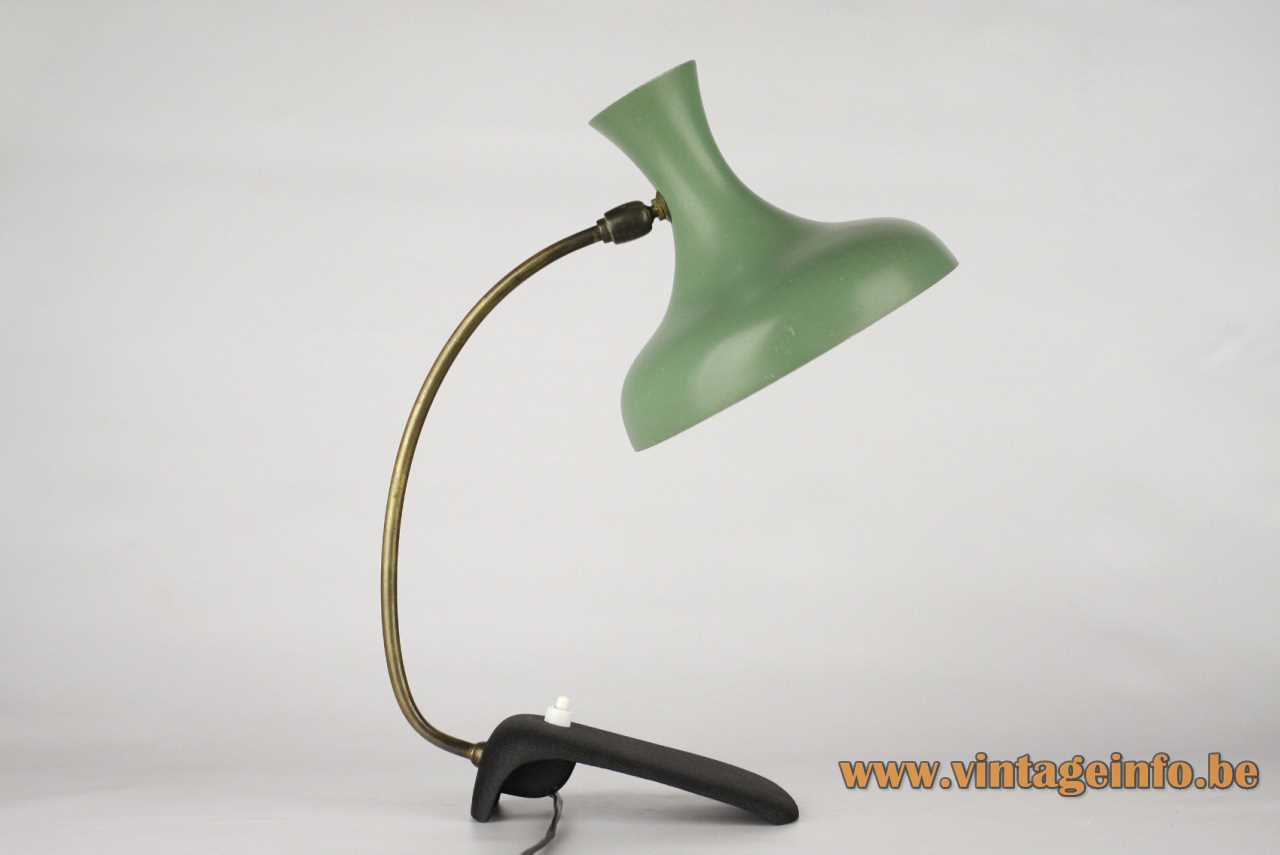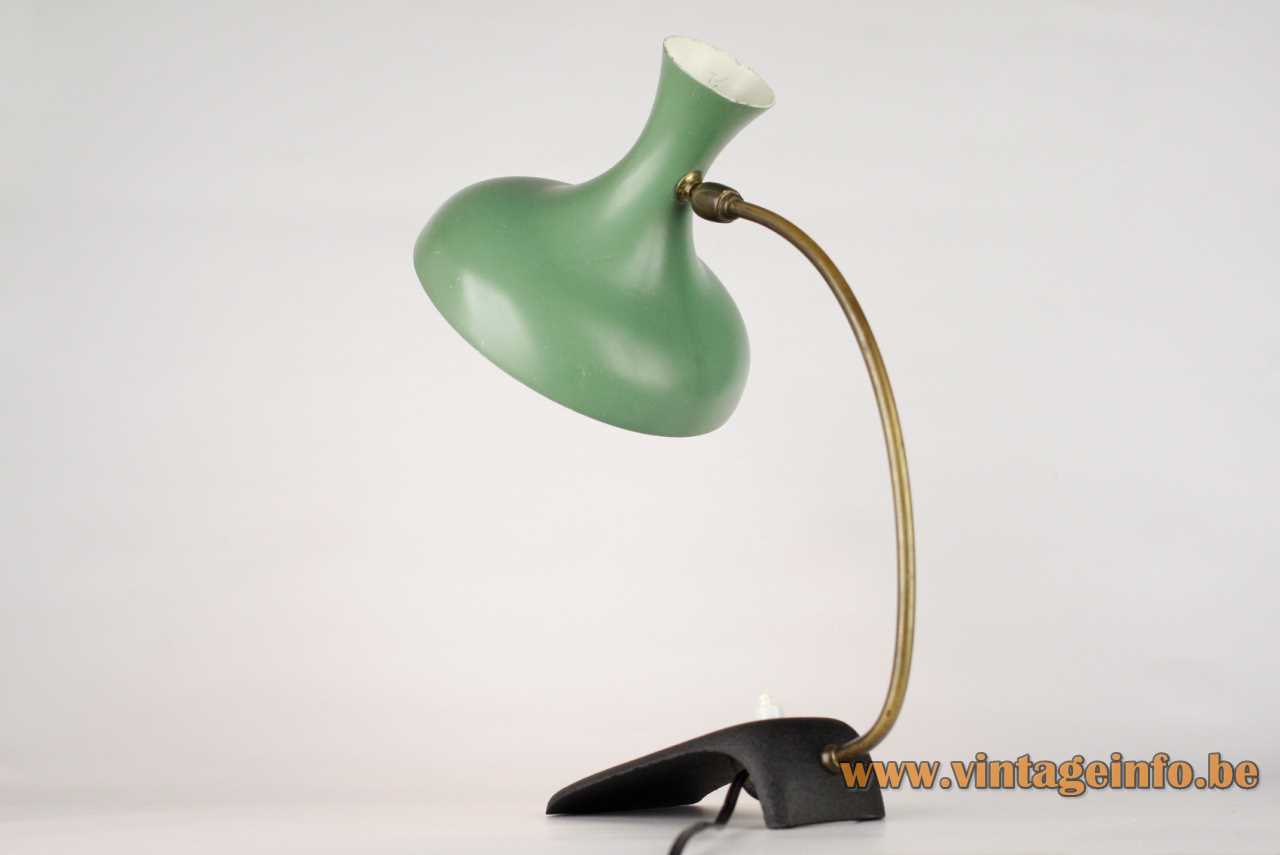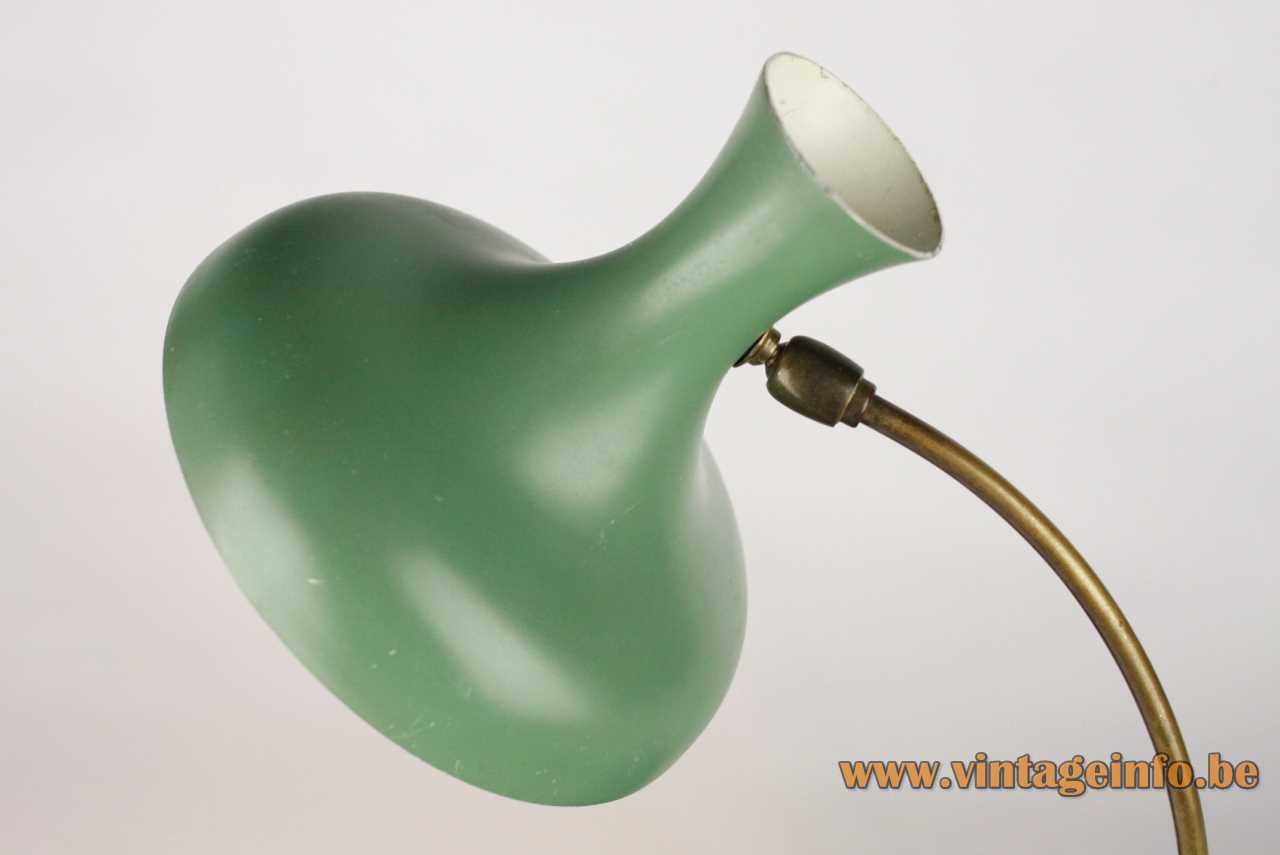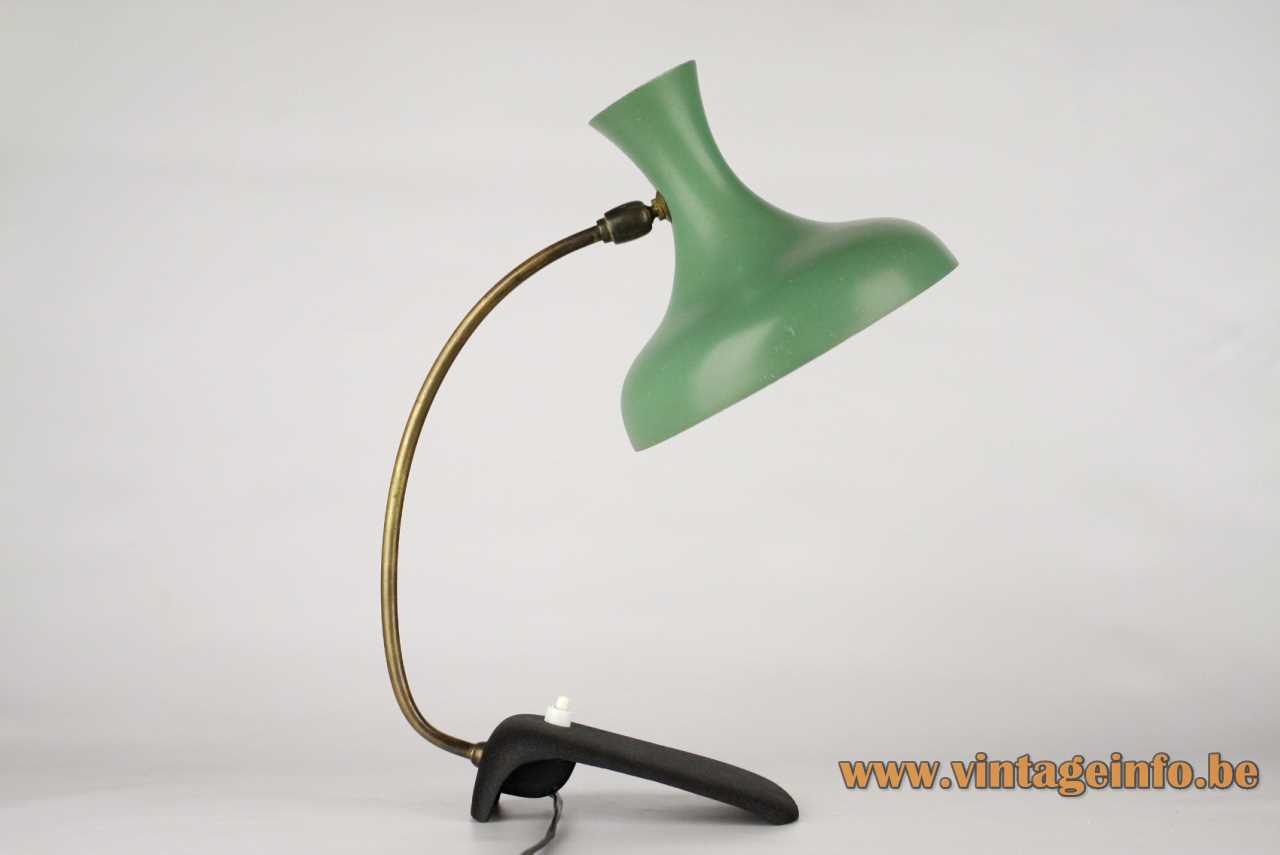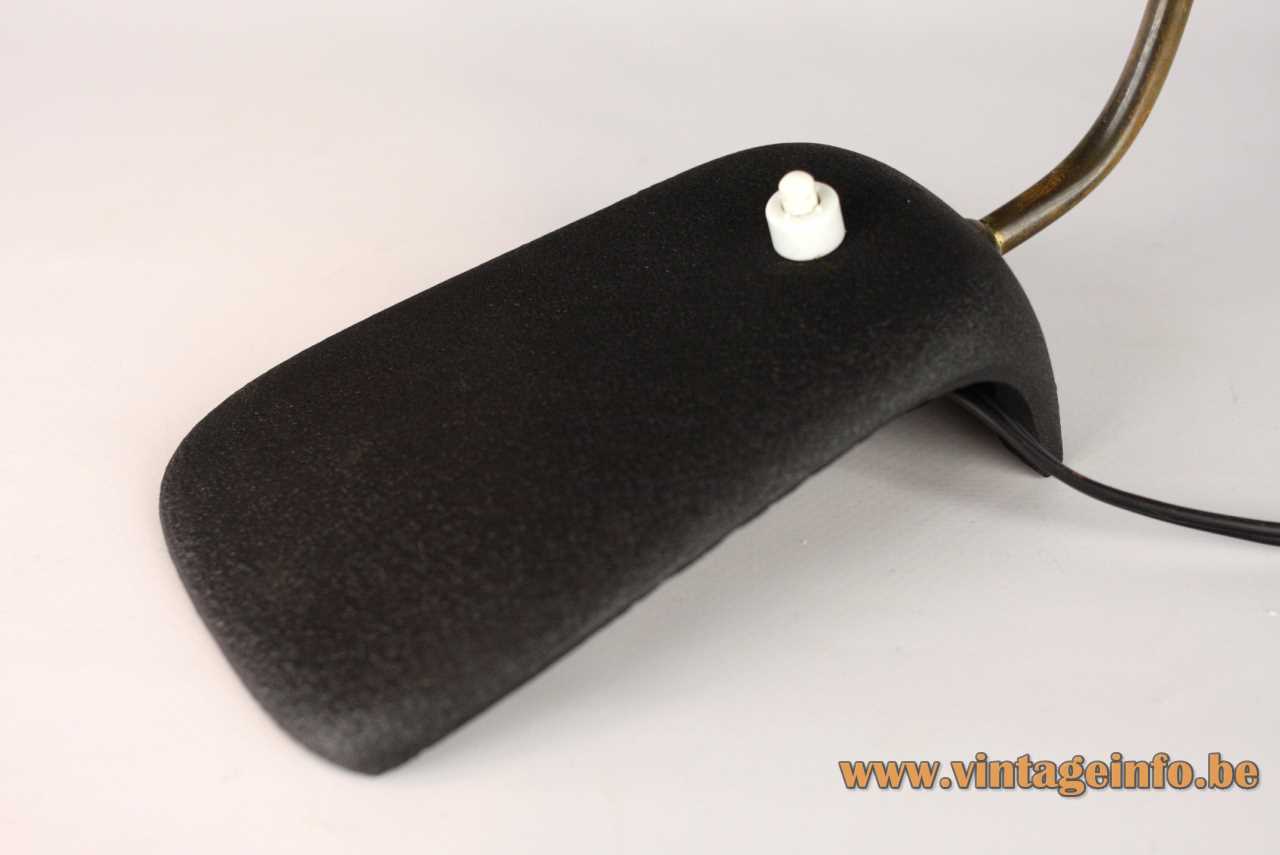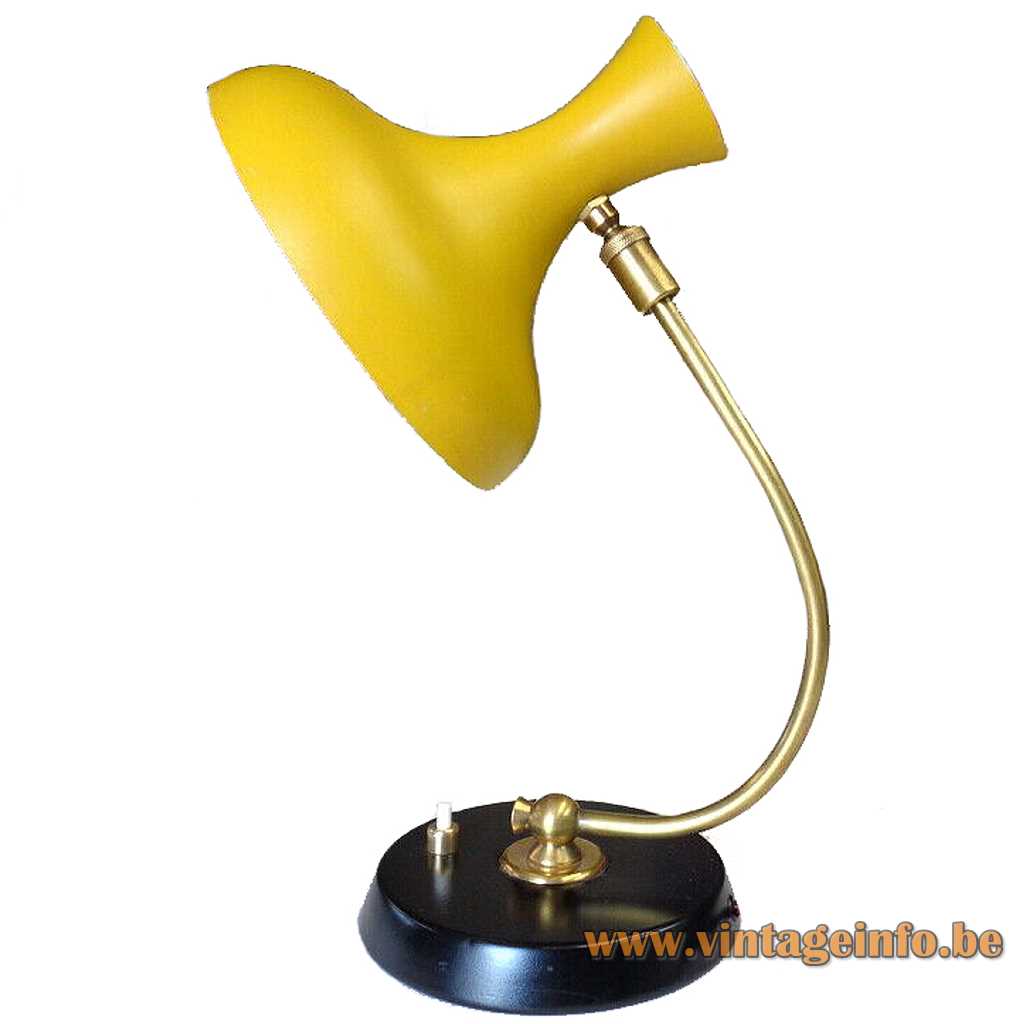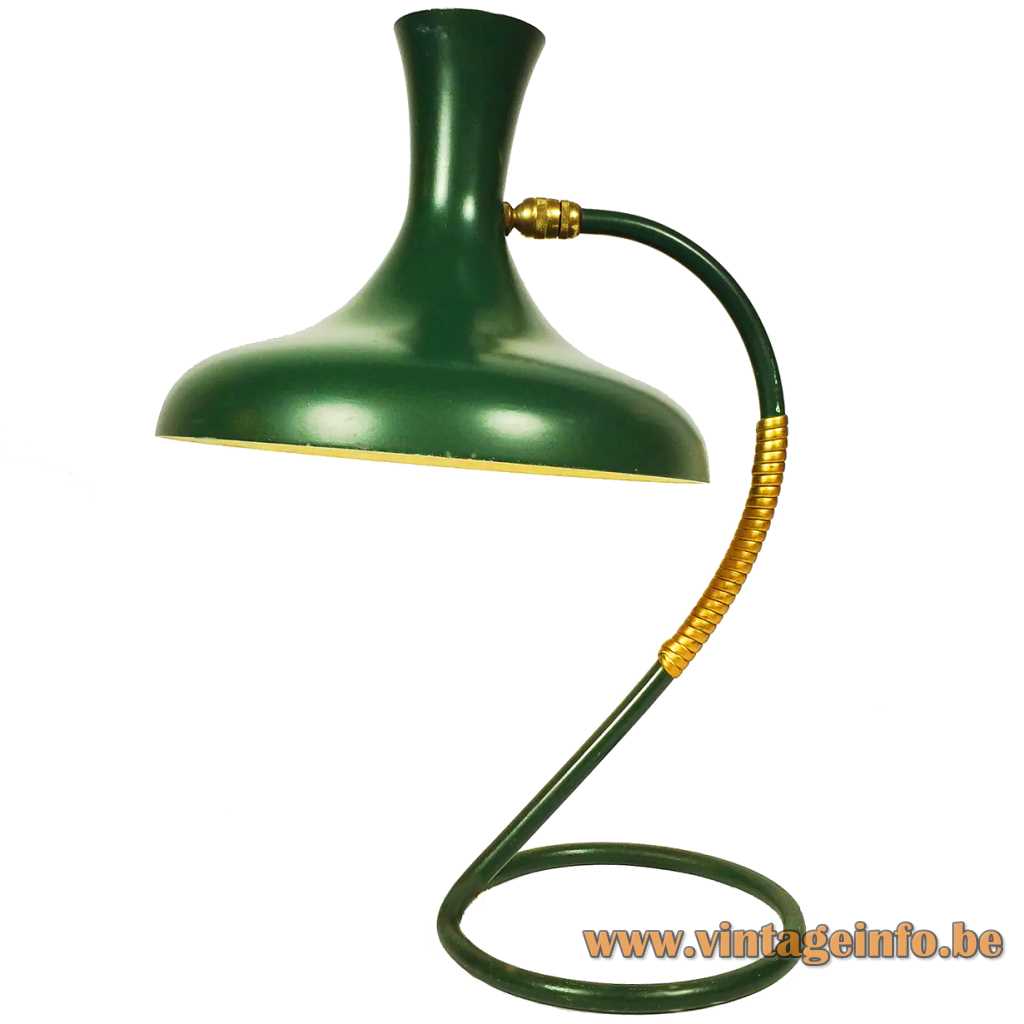Diabolo Erpé Desk Lamp
Materials: Black painted cast iron tripod base, crow’s foot style. Painted with wrinkle paint. Long curved brass rod. Brass joint and parts. Mint green round aluminium diabolo lampshade, painted white inside. Brass E14 socket with a porcelain ring.
Height: 36 cm / 14.17”
Lampshade: ∅ 17 cm / 6.69”
Base: ∅ 16 x 10 cm / 6.29 x 3.93”
Electricity: 1 bulb E14, 1 x 40 watt maximum, 110/220 volt.
Any type of light bulb can be used, not a specific one preferred.
Period: 1950s, 1960s – Mid-Century Modern.
Designer: To be appraised.
Manufacturer: Etablissements Ritzen & Penners, Lehonplein 13, Brussels, Belgium.
Other versions: This diabolo Erpé desk lamp exists in two sizes. The bigger lamp has an E27 socket. Also made with an aluminium (sometimes perforated on the top) lampshade and made in several colours. Also produced with a goose-neck instead of a rod. The cast iron base was also used for other desk lamps.
Often said that this diabolo lampshade is a design by Louis Kalff (Philips), but those are false assumptions.
Erpé
Erpé was the brand name of the company Etablissements Ritzen & Penners. The company was founded in January 1914 by Leon Ritzen and Frans Penners, two entrepreneurs from Brussels. In the 1920s and 1930s Ritzen & Penners manufactured office and work lamps and electrical equipment.
They also distributed the German SABA receivers in the 1920s. Under the brand name Erpé, they marketed broadcast receivers on a modest scale in the 1930s.
The company produced many industrial style desk lamps like this one. This table lamp is model 52. At some point the name Erpé on the lamps was changed into Erpe. In the 50s and 60s they made a whole range of diabolo lamps. The company ended business in the 60s.
The diabolo lampshades were very popular in the 1950s. You can find several examples here on Vintageinfo.
Diabolo
The diabolo, some yo-yo, has it’s origin in China. It’s a double-coned bobbin that can be twirled, tossed, and caught on a string secured by two sticks, one held in each hand. The first diabolo’s were made of bamboo and they made some whistling sound.
In the eighteenth century, the diabolo became known in England and France. The term “diabolo” was made up by French engineer Gustave Phillippart, who developed the modern diabolo in the early twentieth century and he was re-released. Since then, he has been widespread.
Links (external links open in a new window)
Vintageinfo
Many thanks to Lluís from Eclectique Vintage for the photos and the enthusiasm.
